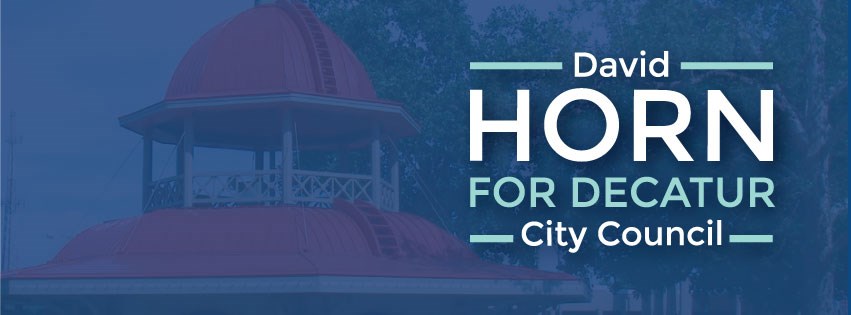
City of Decatur proposes ban on new natural areas within residential areas
For many residents of Decatur, parks are one of the city’s biggest assets. As a resident of the West End neighborhood, I frequently walk on one of the bike trails through natural areas where I enjoy the sights and sounds within wooded areas and the adjacent restored prairies. Unfortunately, the city is proposing an ordinance which would ban the establishment of new natural areas in residential neighborhoods, a ban that may reinforce current socioeconomic disparities associated with access to nature and weaken the city’s neighborhood revitalization efforts. Providing all citizens of Decatur with access to parks should be something the city should strive for, and the city should not ban the development of future natural areas. I am opposed to this ordinance.
ORDINANCE WOULD PROHIBIT NEW NATURAL AREAS IN RESIDENTIAL NEIGHBORHOODS
According to the proposed ordinance, a “’Natural Area’ means an area that has been purposely left to grow in a natural state and can maintain itself in a stable condition with minimal human intervention and contains trees, shrubs, and native plants …” Examples of natural areas include wooded areas around many bike trails in the city as well as larger parks such as Rock Springs Conservation Area. According to new language the city recommends be inserted, “Natural areas are not permitted in any residential zone, or in any zone within three-hundred (300) feet of an active residential structure.” Dozens of homes in Decatur are already enhanced by having natural areas such as those found in Fairview Park and Rock Springs within 300 feet of their house. Why the city is proposing to ban new natural areas in other residential neighborhoods of the city is unclear. It is also unclear what will happen to natural areas that are currently within 300 feet of a residential property. Will the city require these natural areas be converted to non-natural areas?
THE BENEFITS TO NATURE ARE WELL-DOCUMENTED
The ban on new natural areas in residential neighborhoods being recommended by the city is ironically located within the city code in a chapter entitled “Nuisances”. On the contrary, the benefits to natural areas and experiencing nature is well-documented. Spending time in nature enhances our well-being and improves multiple health factors including lower incidences of diabetes and heart disease, and increased longevity in seniors. Having natural areas where our citizens live will allow more of our citizens the opportunity to benefit from nature.
ADDING NATURAL AREAS CAN ENHANCE DISTRESSED NEIGHBORHOODS
I have often been asked: “Once delipidated houses are demolished, what should the city do with the properties?” One viable opportunity is to convert vacant lots into neighborhood parks. However, the proposed ordinance states that “Natural Areas shall not be allowed on lots less than five (5) acres in size …” (unless one lives adjacent to Lake Decatur where Natural Areas are allowed and can be within 10 feet of a residential property). For parts of the city with higher housing densities, such as the city’s urban core, this may mean that citizens will not be able to experience natural areas such as wooded parks in their neighborhood. Natural areas have physical and mental health benefits and give people a greater sense of place.
THE BAN ON NEW NATURAL AREAS COUNTERACTS NEIGHBORHOOD REVITALIZATION INITIATIVE
The number one priority of the Decatur City Council is neighborhood revitalization. The city is recommending changes to the city code which will likely have the opposite effect of revitalizing our city. In fall 2016, Richard Louv, author of “Last Child in the Woods” visited Decatur and challenged our city to become the most nature-rich community in the country. It is time for our city to expand access to nature rather than put restrictions on which neighborhoods natural areas are allowed in.
THE CITY COUNCIL WILL VOTE ON THE PROPOSED ORDINANCE ON MONDAY, JULY 6 - This proposed ordinance is scheduled to be voted on at the next city council meeting on July 6 at 5:30 PM in the Decatur Civic Center Theater.
CITIZENS ARE ENCOURAGED TO PROVIDE FEEDBACK TO CITY COUNCIL MEMBERS – If you would like to discuss this or any other issue with a city council member, phone numbers and e-mail addresses for each council member can be found at the following link: https://www.decaturil.gov/mayor-and-council/council/.
CITIZENS ARE ENCOURAGED TO ATTEND MEETINGS AND EXPRESS THEIR VIEWS – Citizens are allotted 3 minutes per person near the beginning of each city council meeting. In addition, citizens can provide comments regarding one regular agenda item per meeting for up to three minutes provided they notify the city in advance (and prior to the start of the meeting). You can request to speak on a particular agenda item at a council meeting by filling out an on-line form at: https://www.decaturil.gov/mayor-and-council/advance-request-to-speak-at-council-meeting/. Meetings take place at the Theater located on the second floor of the Decatur Civic Center (1 Gary K. Anderson Place). Free parking is available in the lot immediately south of the entrance.
AGENDAS FOR CITY COUNCIL MEETINGS ARE AVAILABLE ONLINE - An agenda to each city council meeting can be found at: https://www.decaturil.gov/mayor-and-council/council-meetings/.
